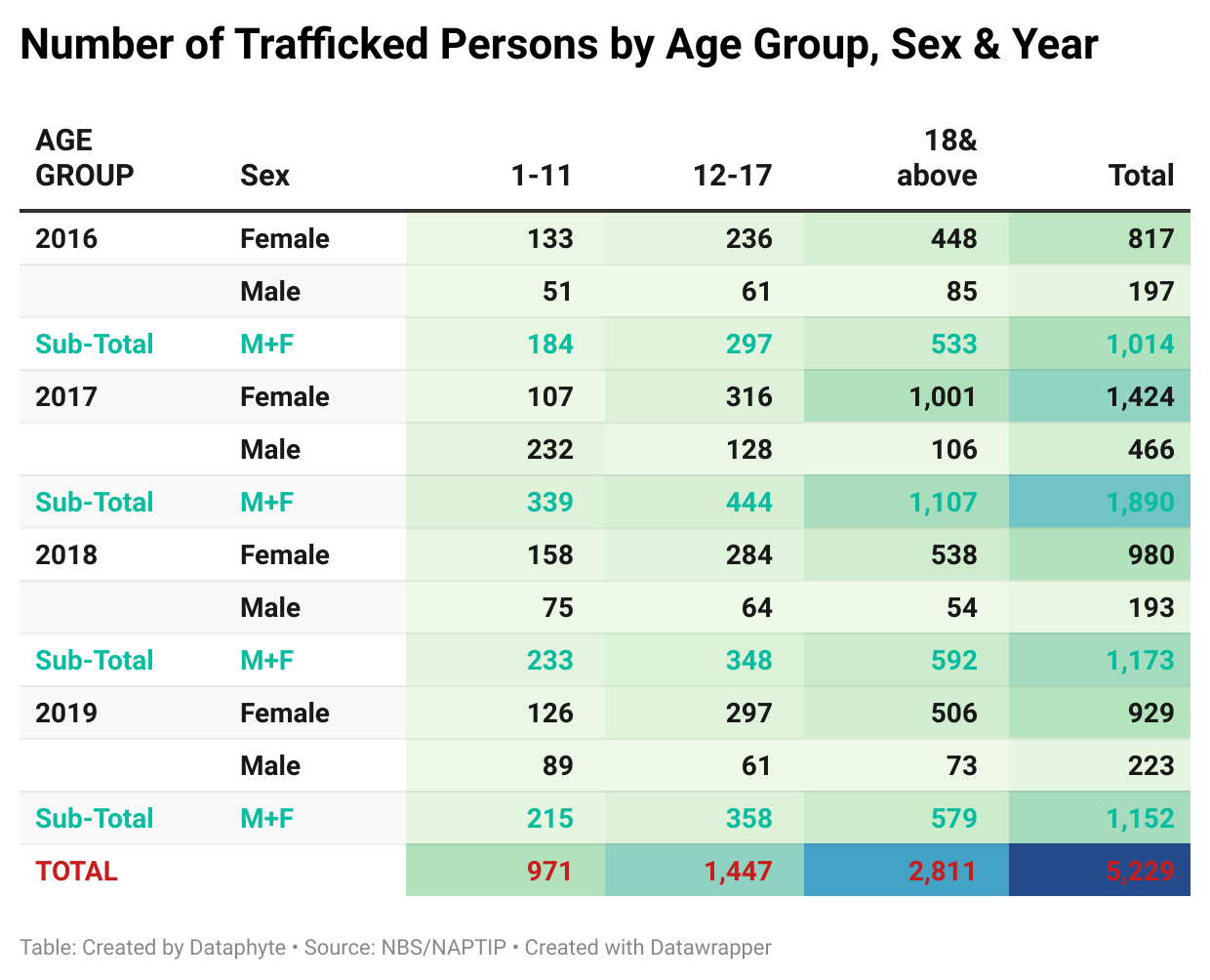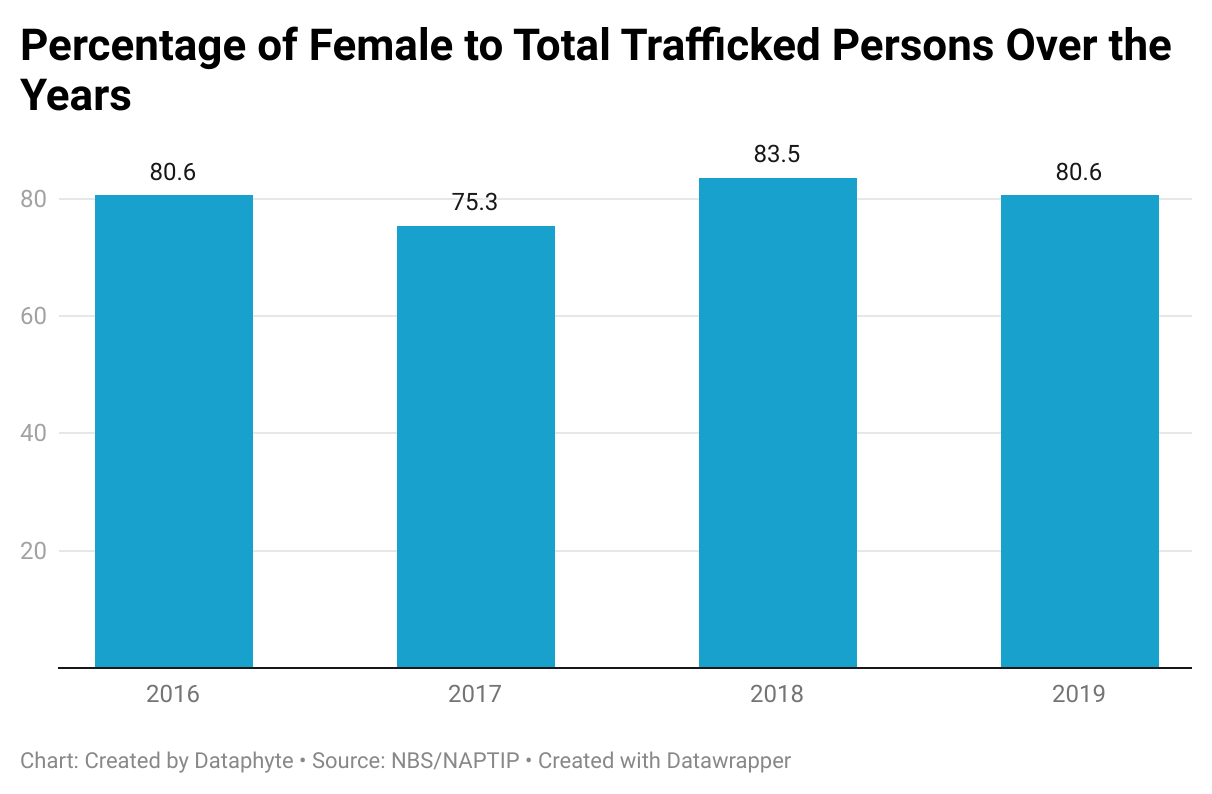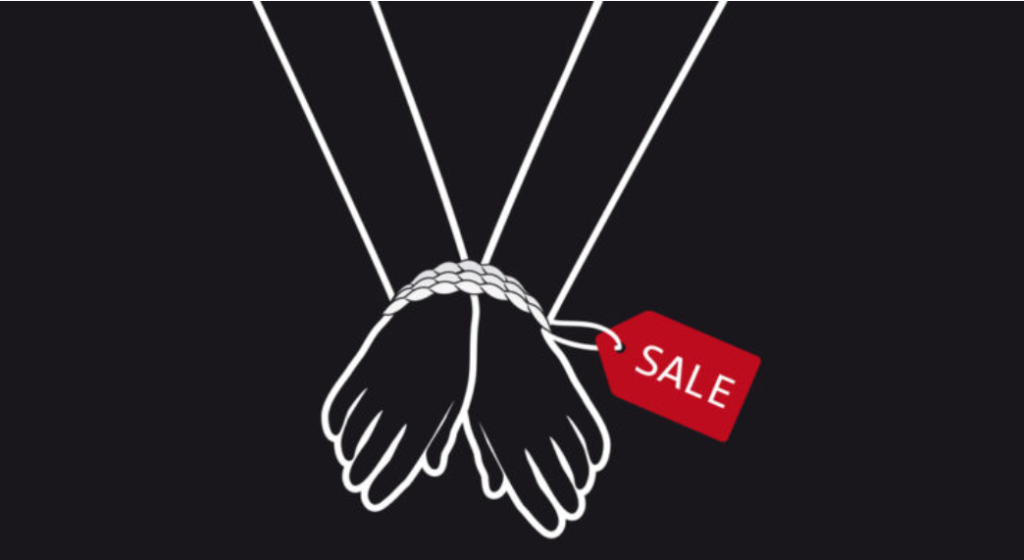Nigeria, recorded a decline in trafficked persons from 1173 persons in 2018 to 1152 persons in 2019, representing a marginal decline of 1.79%.
This is according to a report by the National Agency for the Prohibition of Trafficking in Persons (NAPTIP).
The scourge of human trafficking has continued to reduce albeit slowly. Trafficked persons in the country dropped from 1890 persons in 2017 to 1152 persons in 2019.
Human trafficking is an age-long crime that exploits people for profit. Victims are cut across all ages and are used for varying purposes but mostly sexual exploitation and forced labour. Globally, 79% of traffickers are used for sexual exploitation and 18% for forced labour.
Human trafficking remains the third-largest crime in Nigeria, a crime that is intertwined with some of the culture and norms of the people.
 Number of persons trafficked in Nigeria
Number of persons trafficked in Nigeria
Across age groups, most of the victims are 18 years and above. This age group accounts for more than half of the total trafficked persons. In 2016, 533 of the 1014 persons trafficked were 18 years and above. This represents 52.56% of those trafficked.
In 2017, 58.58% of those trafficked are 18 years and above. The proportion for 2018 and 2019 are 50.47% and 49.74% respectively.
At least seven out of every ten trafficking victims are female. The number of females trafficked over the four year period is four times that of males. In 2016, 80.57% of the victims were females. The proportion dropped to 75.34% in 2017, then increased to 80.54% in 2018 and 80.64% in 2019. Nigeria occupies a pivot position in West Africa as the country of origin, transit, and destination of human trafficking. The country in its fight against this scourge enacted the Trafficking in Persons Law Enforcement and Administration Act, in 2003. This act prohibits all forms of human trafficking in the country with penalties stipulated for offenders.
Nigeria occupies a pivot position in West Africa as the country of origin, transit, and destination of human trafficking. The country in its fight against this scourge enacted the Trafficking in Persons Law Enforcement and Administration Act, in 2003. This act prohibits all forms of human trafficking in the country with penalties stipulated for offenders.
The establishment of NAPTIP in 2003 shows Nigeria’s readiness to fight human trafficking. Though the agency has recorded little success in the prosecution of victims, it has however made notable progress in other areas.
The agency has over the years partnered with international organisations to train and provide specialized technical assistance to security personnel at various outlets on how to recognize, investigate and prosecute instances of trafficking. These efforts towards the reduction of trafficked persons have been recognized.
Nigeria’s many unmanned borders, poverty, and a judicial system in need of reforms are a few of the challenges that undermine the work of the Agency. The paucity of up-to-date data also makes it challenging to hold the system accountable.
Though the decline shows progress, there is yet more to be done.



 Number of persons trafficked in Nigeria
Number of persons trafficked in Nigeria